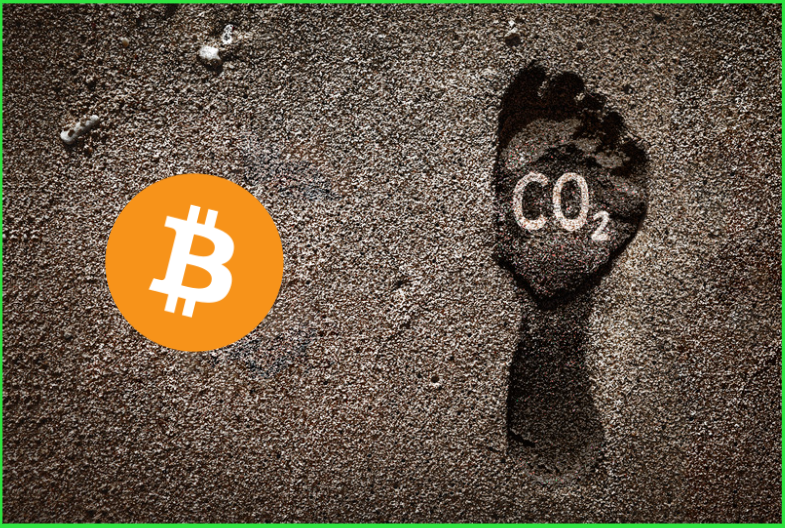Balancing Crypto's Carbon Footprint with Its Social Utility is Key to Sustainable Finance
Global Digital Finance argues that digital assets' carbon footprint is outweighed by its social utility.
By: Global Digital Finance • Loading...
Research & Opinion
The extraordinary growth that we have seen in the crypto and digital asset sector throughout this year has brought with it much attention from across media platforms, not all of which has been positive.
With the industry in the spotlight, our global community has a welcome opportunity to communicate the nuances of the crypto-energy consumption debate, as well as the broader social utility of digital assets. For our report, Digital Assets: Laying ESG Foundations,we asked the members of Global Digital Finance to contribute their insight and research to help deepen the wider understanding of the role of digital assets in building sustainable financial systems.
We were privileged to include the Cambridge Centre for Alternative Finance’s observations on Bitcoin’s carbon footprint. Michel Rauchs and Alexander Neumueller call for those on both sides of the debate to raise the level of public discourse: neither the argument that Bitcoin is a climate disaster, nor that it has no environmental impact, holds up well in the face of the available data.
A radical thought experiment suggests that, in a hypothetical worst case, Bitcoin could produce as much as 158 million metric tons of carbon dioxide this year.
.
“A radical thought experiment suggests that, in a hypothetical worst case, Bitcoin could produce as much as 158 million metric tons of carbon dioxide this year, or roughly 0.48% of the world’s total emissions in 2019 (assuming an annualized consumption of 100 TWh),” say Rauchs and Neumueller, adding that actual figures will be much lower when the renewable energy in use is accounted for. “While this is by no means a small feat, it is still far away from the climate disaster that opponents often paint.”
Their data shows that the seasonal migration between hydro-rich Sichuan during the monsoon season and coal-rich Xinjiang during the dry season materially affected the energy profile of Bitcoin mining in China. With China’s recent crack down on crypto mining, the impact on the overall carbon footprint will be smaller, but this nevertheless demonstrates that the incentive to decarbonise is economic.
Social Utility
The debate is hindered by a lack of clear data. BitMEX and Coinbase both call the community to collaborate as an industry to share data needed to understand the full extent of the damage caused to the environment, and to address the impact accordingly, while ensuring this is not done at the expense of decentralization.
We must assess digital assets just as we have judged legacy industries: by taking the social utility of the product into account while deciding how we address the environmental impact. As presented by R3, DLA Piper, and Clifford Chance,distributed ledger technology and tokenization provide solutions to the challenges currently found in green and impact-linked bonds. As with many parts of the financial system, KPI-linked bonds suffer from a lack of automation and traceability. Tokenization provides a more stringent way to support the monitoring, reporting, and verification aspects of climate-related projects.
“Funding a sustainable future will require a Herculean effort,” says R3 co-founder and Chief Product Officer, Todd McDonald. Tokenization can be used to finance small and medium-sized enterprises (SMEs) in emerging markets by providing the missing infrastructure and enabling accessible, liquid markets. Non-fungible tokens (NFTs) are leveraged to make ‘unbankable’ conservation projects bankable through art.
Digital Key to Sustainability
In this increasingly digital world, the overwhelming message from our community is that digital holds the key to sustainable finance. Z/Yen summarized industry frustrations with anti-crypoasset narratives in their article, Don ́t Throw The Digital Baby Out With The Climate Bathwater, in which they call for industry leaders and policy makers to not hinder cryptoasset trading activity at the expense of mandatory innovation in financial markets.
Crypto may not be the climate disaster painted by many headlines, but the current environmental emergency suggests not being part of the problem is not enough – we must strive to be part of the solution.
The GDF ESG reportaccurately reflects a community that is dedicated to improvements: improvements to public discourse, self-improvement concerning the industry’s carbon footprint, and improvements to legacy systems that are necessary for achieving the Sustainable Development Goals (SDGs).
What Can We Do Better?
Whether calling for the industry to share data on mining, help bank the unbanked, give access to funding in emerging markets, finance “unbankable” biodiversity projects, or Maker’s move to ensure all Dai’s collateral comprises sustainable and climate-aligned assets, it is clear that this is a community driven in its efforts to supporting sustainable finance.
To turn this drive into further action, GDF will convene a community summit to discuss the what and how of delivering net zero in a digital finance context. The roundtable event will convene participants from across the crypto and digital assets market to gain perspectives on each part of the value chain in the context of net zero and the broader sustainability agenda, as well as insights on scopes 1, 2, and 3 emissions, science-based targets and transition pathways, as they relate to this sector.
We would like your input on this and invite you to have a voice in the discussion on how to mobilise the industry and to turn awareness into action.
The GDF Summit: the Digital Assets-COP26 Dialogues will take place on 11 November 2021, 14:00 GMT. Find out more about the Summit here.
For more information on how GDF engages with stakeholders across the digital asset ecosystem, visit gdf.io or follow us on Linkedin and Twitter.
Advertisement
Get the best of The Defiant directly in your inbox 💌
Know what matters in Web3 with The Defiant Daily newsletter, every weekday
90k+ investors informed every day. Unsubscribe anytime.